|
For the Western press, the 20th National Congress of the Chinese Communist Party offered a number of signals which—if read in good faith—could have been perceived as reassuring. Instead, establishment outlets reverted to familiar narratives regarding China’s Covid mitigation strategy and tied these into renewed predictions of a long-prophesied economic disaster—one that would inevitably befall China as a result of its government’s decision to forsake the orthodoxy of open markets. More than anything else, corporate media fixated on Hu Jintao’s departure from the congress hall, engaging in tabloid-variety speculation around the fate of CCP General Secretary Xi Jinping’s 79-year-old predecessor. Invoking the specter of a purge, outlets like the New York Times and CNN pushed the narrative that Xi manipulated events to consolidate his power. However, the “evidence” used by corporate media to suggest that Xi orchestrated Hu’s exit as part of a power grab was far from convincing. Substantive developments If establishment outlets covering the congress were on the lookout for substantive developments—rather than additional fodder to comport with their prefabricated narratives—they could have found them. Despite the Biden administration’s belligerent posture vis-à-vis Taiwan, demonstrated by escalations like Nancy Pelosi’s visit to the island and Biden’s own promise to deploy US forces in the event of a forced reunification, Xi indicated that China would continue to approach cross-strait relations with restraint.
In addition, Xi’s opening report to the congress placed particular emphasis on the task of combating climate change. The section titled “Pursuing Green Development and Promoting Harmony between Humanity and Nature” presented a four-part framework to guide China’s policy efforts in this area. Even the avidly pro-Western Atlantic Council had to admit that “China is showing its leadership in green development in a number of ways.” Since China is home to one-fifth of the global population, and is currently the most prolific CO2-emitting country on Earth, its government’s decision to prioritize a comprehensive response to the climate crisis seems like an unambiguously positive development. The congress even provided some encouraging news for those who claim to care about human rights. In a surprise move, Chen Quanguo, who was hit with US sanctions for his hardline approach as party secretary in both Tibet and Xinjiang, was ousted from the central committee. But US corporate media generally failed to highlight these developments as positive news. In fact, with the exception of some coverage of Xi’s statements on Taiwan—which largely misrepresented China’s posture as more threatening than a good-faith reading would indicate—US news outlets had remarkably little to say about the substance of any news coming out of the congress. Recycled narratives As FAIR (3/24/20, 1/29/21, 9/9/22) has pointed out at various points in the pandemic, corporate media—seemingly disturbed by China’s unwillingness to sacrifice millions of lives at the altar of economic growth—have been almost uniformly critical of the Chinese government’s Covid mitigation strategy.
The article went on to quote Jude Blanchette, a “China expert” at the Center for Strategic and International Studies (CSIS), who declared, “There is nothing positive or aspirational about zero Covid.” That CSIS would disseminate such a narrative—with the assistance of the reliably hawkish Times—is unsurprising, since the think tank’s chief patrons share a common interest in vilifying China. CSIS’s roster of major donors includes military contractors Northrop Grumman, General Dynamics, Lockheed Martin and Boeing, as well as a litany of oil and gas companies—all of whom derive financial benefit from America’s military build-up in the Pacific. CSIS has also received millions of dollars from the governments of Taiwan, Japan and South Korea. Sitting on its board of trustees are Phebe Novakovic, chair and CEO of General Dynamics, and Leon Panetta who—as Defense secretary in the Obama administration—helped craft the DOD’s “pivot to Asia.” ‘No to market reforms’
While China’s “reform and opening-up” has been immensely profitable for corporations—as evidenced in media coverage (Forbes, 10/24/22; NYT, 11/7/22) of global markets’ uneasiness over Xi’s alleged “return to Marxism”—its impact on Chinese workers has been uneven, to say the least. Living standards have improved generally, but labor conditions remain poor and inequality is growing. Like the Times, CNN went the think tank route to support its thesis, quoting Craig Singleton—senior China fellow at the Foundation for Defense of Democracies (FDD): Yesterday’s speech confirms what many China watchers have long suspected—Xi has no intention of embracing market liberalization or relaxing China’s zero-Covid policies, at least not anytime soon…. Instead, he intends to double down on policies geared towards security and self-reliance at the expense of China’s long-term economic growth. Despite the fact that China watchers have, for as long as one can remember, predicted a collapse of China’s economy that has yet to materialize, corporate media keep on returning to that same old well. For its part, FDD—to which CNN attached the inconspicuous label of “DC-based think tank”—is a neoconservative advocacy group that has an ax to grind with China. The chairman of FDD’s China Program is Matt Pottinger, former deputy national security advisor to Donald Trump. Early on in the pandemic, a Washington Post profile (4/29/20) of Pottinger stated that he “believes Beijing’s handling of the virus has been ‘catastrophic’ and ‘the whole world is the collateral damage of China’s internal governance problems.’” The article quoted Trump’s second national security advisor, H.R. McMaster—who is also currently employed as a “China expert” at FDD—as calling Pottinger “central to the biggest shift in US foreign policy since the Cold War, which is the competitive approach to China.” Desperate search for a purge If consumers of corporate media only encountered one story about the congress, it probably had something to do with this seemingly innocuous development: During the congress’s closing session, aides escorted Hu Jintao—Xi’s predecessor as China’s paramount leader—out of the Great Hall of the People. Later that day, Xinhua, China’s state news agency, said that Hu’s departure was health related. This explanation isn’t exactly far-fetched, since the 79-year-old Hu has long been said to be suffering from an illness—as early as 2012, some observers posited that the then-outgoing leader had Parkinson’s disease. Since the whole episode was caught on camera, however, corporate media were not satisfied with China’s mundane account of events. Instead, establishment outlets seized the moment and transformed Hu’s departure into a dramatic spectacle, laden with sinister connotations. The speculation that followed was almost obsessive in nature.
In reference to the haloed party figures whose “expressions did not change” as Hu was escorted away, the Times quoted Wu Guoguang, a professor at Canada’s University of Victoria: Here was Hu Jintao, the former highest leader of your party and a man who had given so many of you political opportunities. And how do you treat him now?… This incident demonstrated the tragic reality of Chinese politics and the fundamental lack of human decency in the Communist Party. While noting that Wu “said he did not want to speculate about what had unfolded,” the Times evidently did not consider this statement of caution as being at odds with his subsequent use of Hu’s departure to condemn the CCP in the broadest possible terms. Indeed, the paper of record saw no problem with attributing the failure of Hu’s colleagues to react in a more appropriate manner—whatever that may have been—to “the tragic reality of Chinese politics” and a “fundamental lack of human decency” on the part of the CCP. Here was a microcosm of corporate media’s contradictory approach to the episode: a professed reluctance to engage in conjecture, persistently negated by an overwhelming eagerness to cast aspersions. In line with this tack, the Times resorted to innuendo by posing a hypothetical question: Was Mr. Hu, 79, suffering from poor health, as Chinese state media would later report? Or was he being purged in a dramatic show by China’s current leader, Xi Jinping, for the world to see? Rather than asserting outright that Hu was the victim of a purge, the Times advanced this familiar red-scare narrative by including two photographs from the Cultural Revolution—one of which depicts Xi’s father being subjected to humiliation during a struggle session. With these images, the Times coaxed readers into making a spurious connection between Hu’s exit and the political repressions of yesteryear. Unfazed by lack of evidence
Predictably, cable news networks and China watchers also took part in the orgy of speculation. On CNN’s Erin Burnett Out Front (10/25/22), international correspondent Selina Wang said this: Now, I have spoken to experts who think there is more to this than that pure health explanation, including Steve Tsang of [the] SOAS China Institute. He told me that this is humiliation of Hu Jintao. It is a clear message that there is only one leader who matters in China right now and that is Xi Jinping. She did not mention the fact that Tsang is a fellow at Chatham House, a think tank that derives a substantial proportion of its funding from the US State Department and the governments of Britain and Japan. The day before, on CNN Newsroom (10/24/22), Wang stated, “Hu Jintao. . . was publicly humiliated at the closing ceremony of the Party Congress.” The only support she offered for this assertion came from Victor Shih, another China watcher from the aforementioned CSIS, who conjectured: I am not a believer of the pure health explanation. And it seemed like [Hu] sat down in a pretty stable manner. And then suddenly, he was asked to leave. I’m not sure if he whispered something, said something to Xi Jinping. Half-acknowledging that Shih’s description of events actually said nothing at all, Wang concluded: “Regardless, it was a symbolic moment. Out with Hu and the collective leadership of his era.” For Wang and for corporate media’s treatment of the episode writ large, “regardless” was the operative word—regardless of the fact that they were merely engaged in baseless speculation, they would still inevitably arrive at the most sinister conclusion. AuthorEric Horowitz is a FAIR intern and student at the CUNY School of Law, with a particular focus on housing and labor. He is also involved in organizing around Palestinian solidarity. You can follow him on instagram at Eric_Horowitz. This article was republished from Fair. Archives November 2022
0 Comments
Leave a Reply. |
Details
Archives
July 2024
Categories
All
|
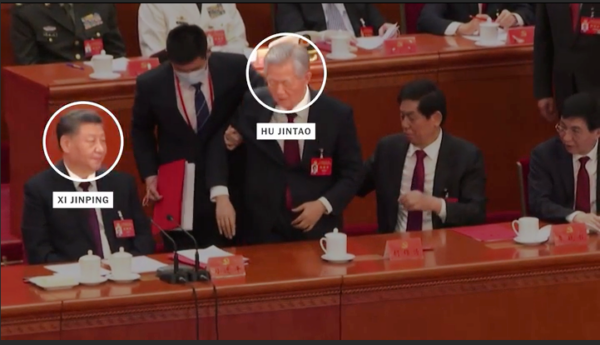
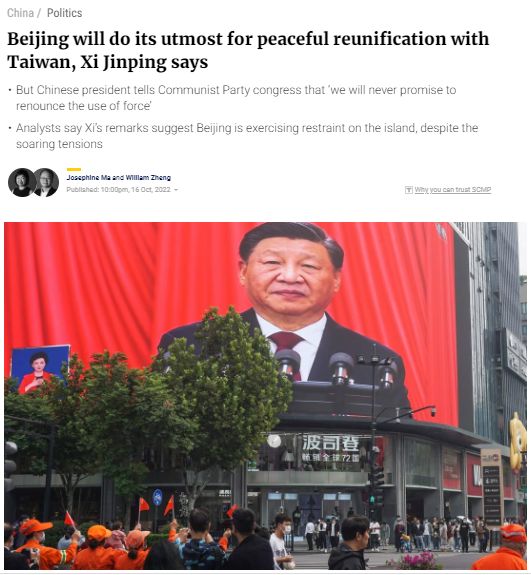
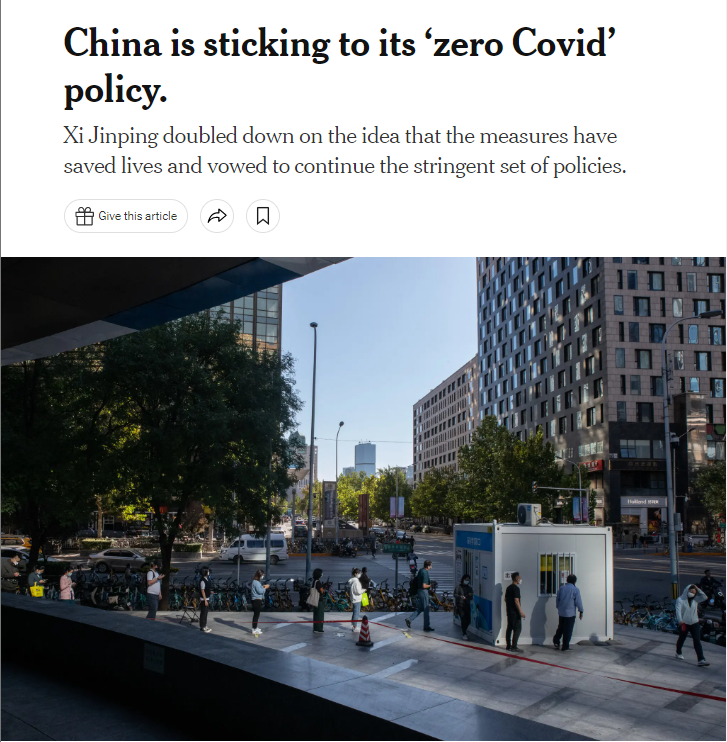
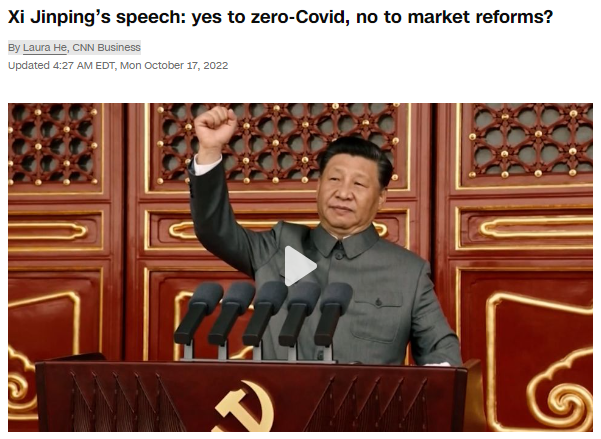
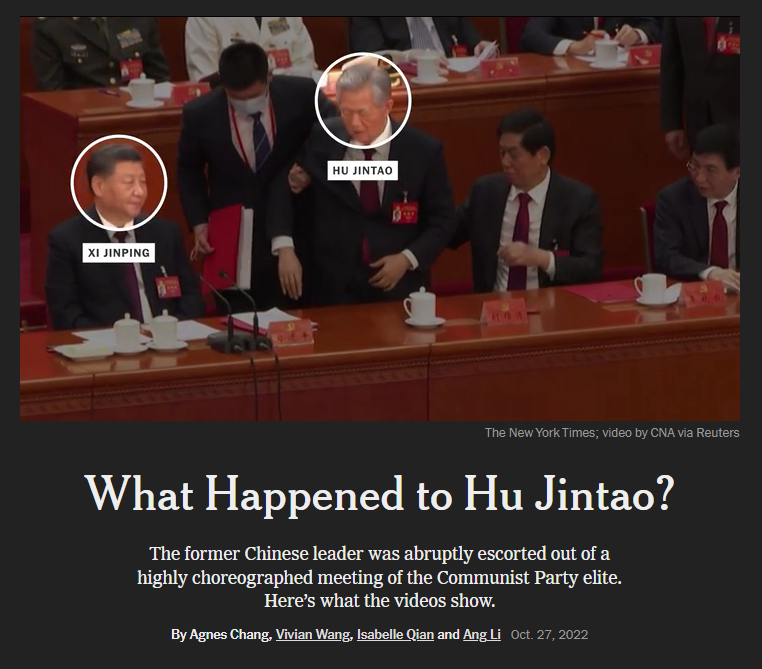
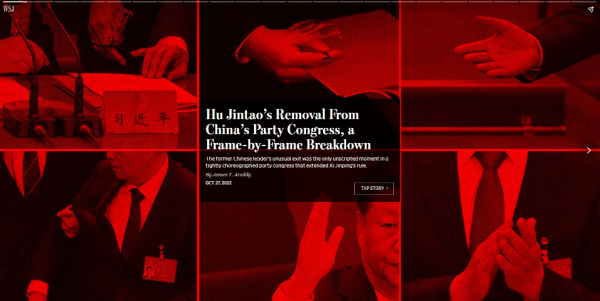
 RSS Feed
RSS Feed